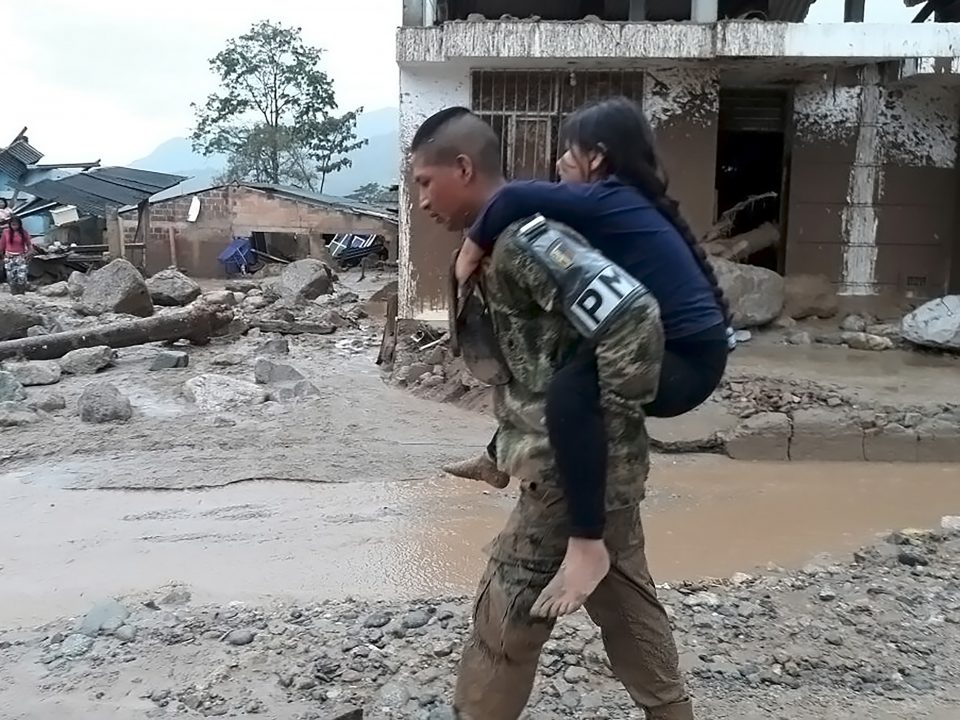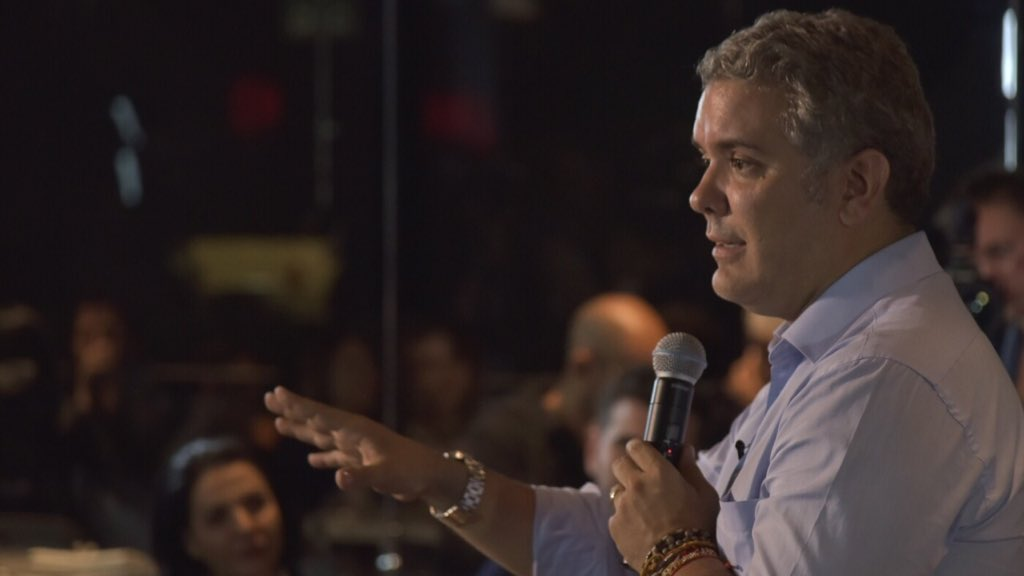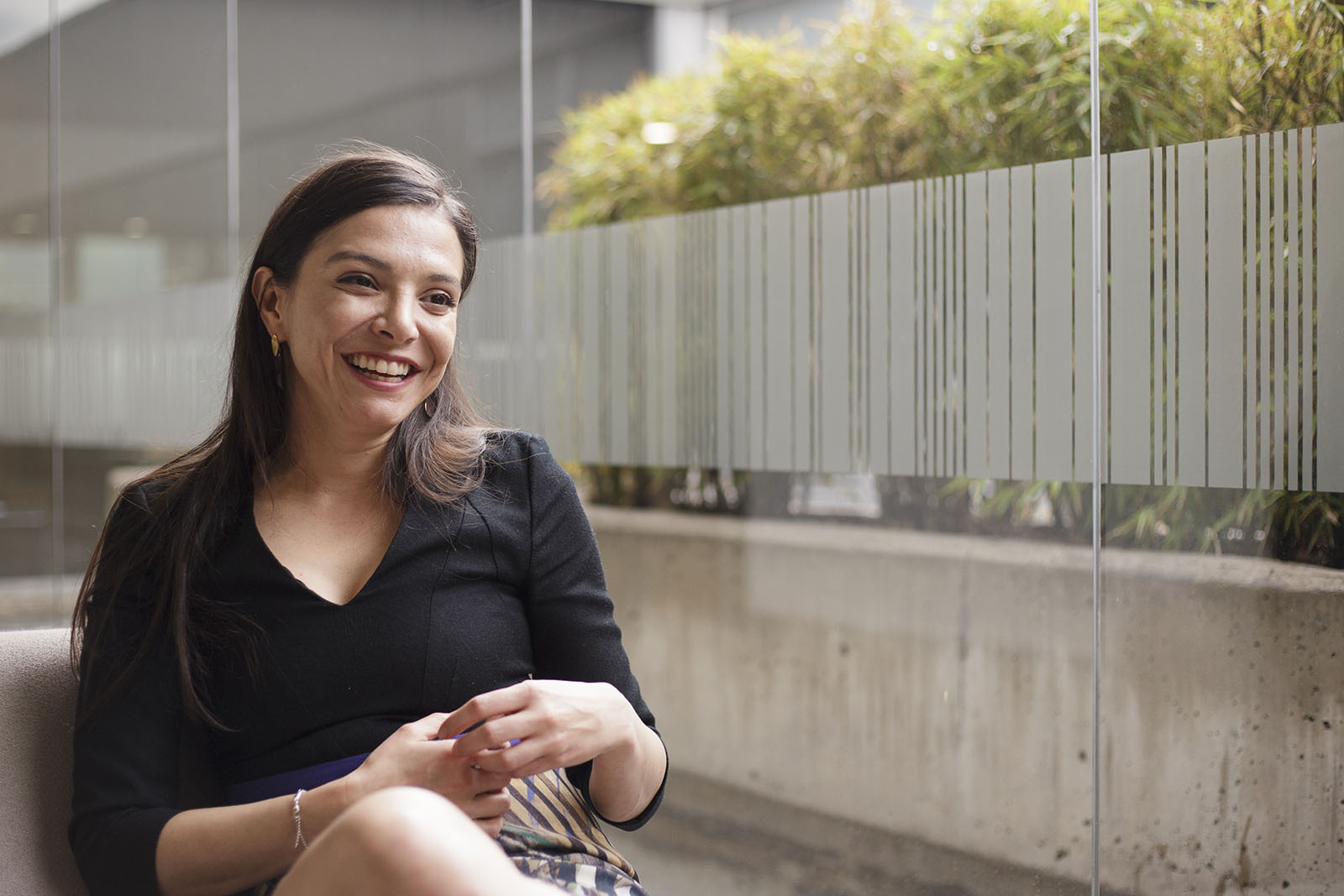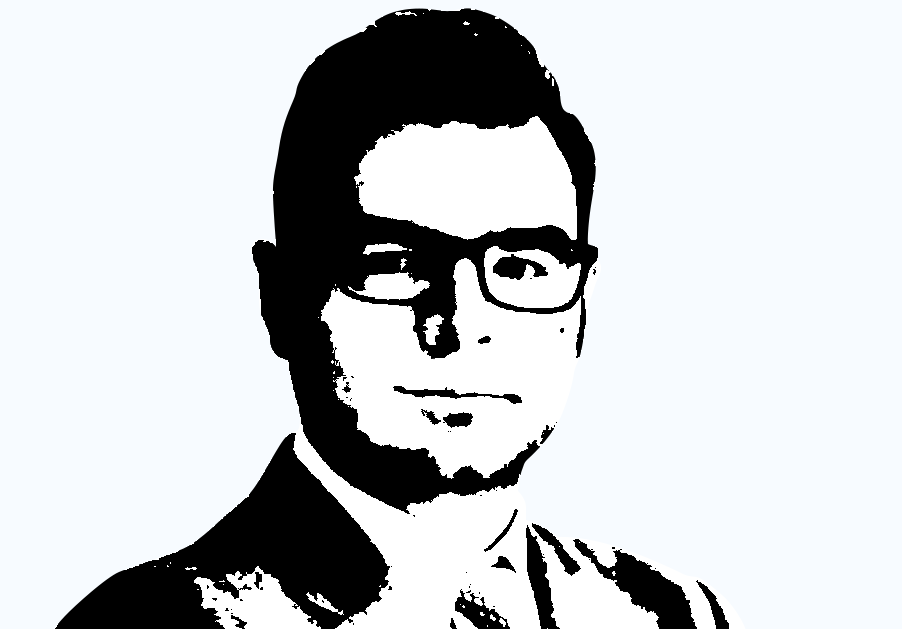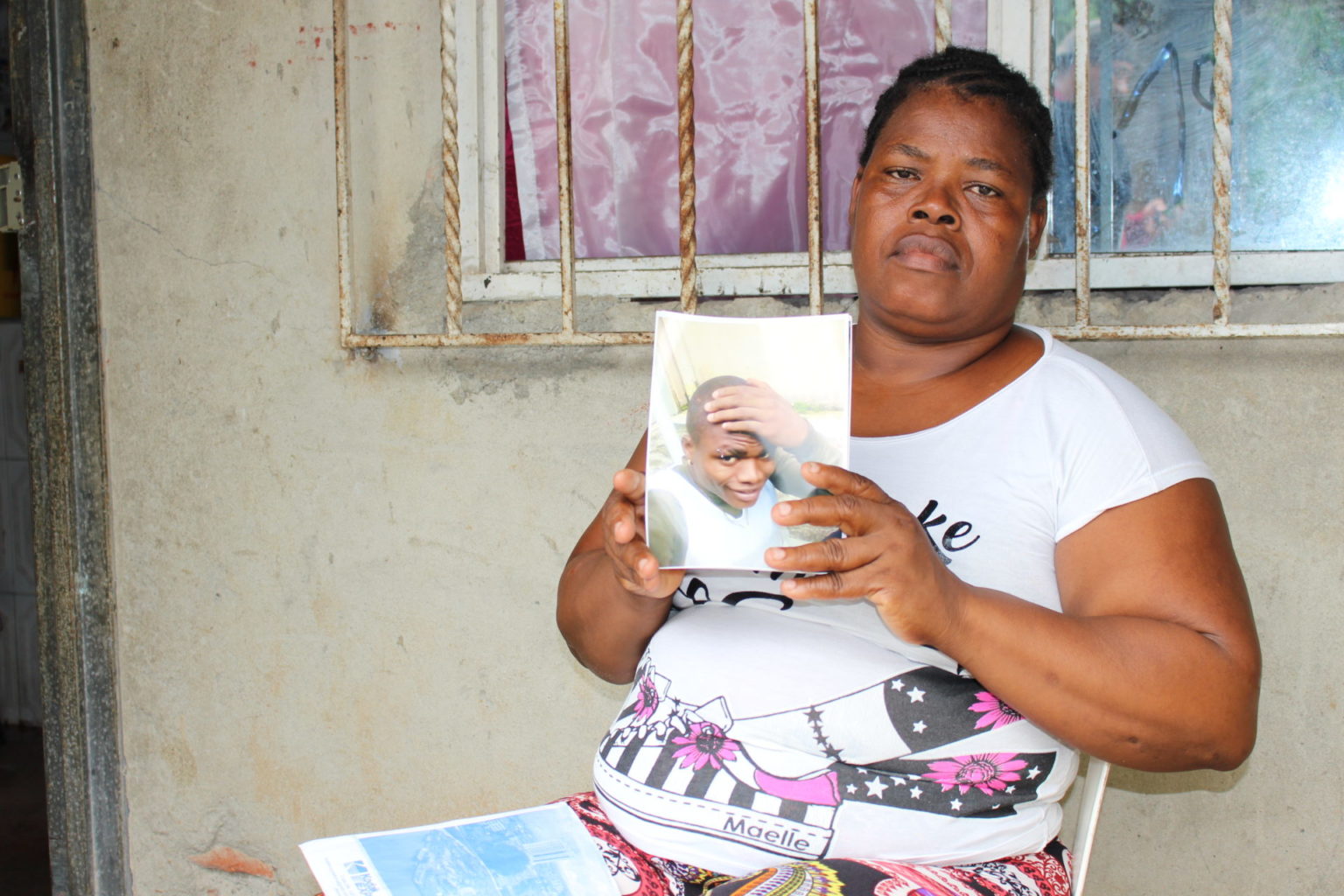Collecting and sharing Venezuelan migrant and refugee testimonies.
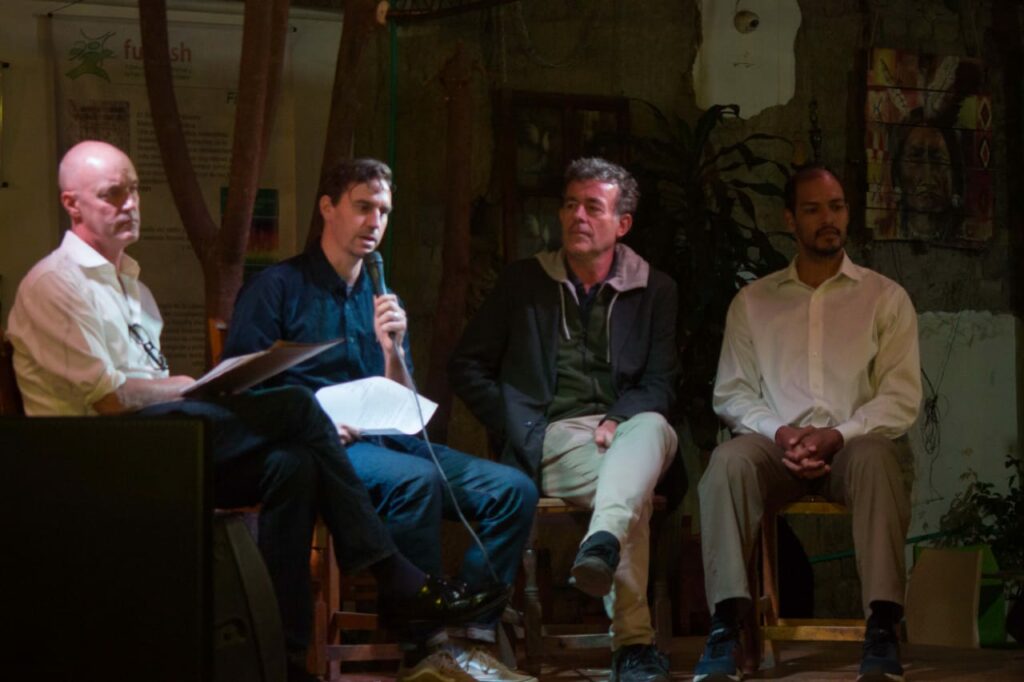
A pregnant woman is forced to leave her young child behind in order to care for her unborn child. A man with three university degrees arrives in Colombia and cannot use his qualifications to find work. A young woman motivates her son to keep walking from town to town, even when she has little motivation left for herself. These are just details from a few stories, but there are thousands of similar ones – all of Venezuelans making the long, harrowing journey from the Venezuelan border to Bogotá on foot.
Until recently, there was no personal written record of these stories.
That is until Douglas Lyon and Solymet Carrero started collecting them in October of 2018. The pair, who had met in Cali during an acro yoga retreat, found themselves in Pamplona, a Venezuelan town about 70 kilometres southwest of Cúcuta. They were there to coordinate a cultural and technical exchange between Acroyoga Montreal and a group in San Cristóbal, Venezuela. Their purpose quickly became much greater.
“Not completely understanding the scope of the crisis but understanding there was something big going on, we thought to leave a libro de actos (guest book) in one of the refugios in Pamplona. This was to let the refugees themselves write their stories. We came back a week later and it was filled with dozens of stories. Stories about people’s journeys out of Venezuela crossing through the border, the bridges, the trochas... heart-wrenching reads,” said Lyon.
Some shy away from the term refugee because international law affords refugees certain protections – such as the protection from being sent back to their homes. However, the UNHCR (UN Refugee Agency) argues that “the majority of those fleeing the country are in need of international refugee protection.”
It argues, “UNHCR considers that for Venezuelan nationals, or stateless nationals who were habitually resident in Venezuela, the majority are in need of international protection under the criteria contained in the Cartagena Declaration on the basis of threats to their lives, security or freedom resulting from the events that are currently seriously disturbing public order in Venezuela.”
The migrant route continues from Cúcuta and Pamplona, following Colombia’s Eastern Andean range, and ascending to Bucaramanga and Bogotá. The UN estimates that there are 500 to 1,000 Venezuelan refugees on the route every day. In less than a year, Lyon and Carrero collected hundreds of stories from the albergue in Pamplona.
“Migrants need to find ways to parse through their emotions, to reflect and mourn what it means to leave their country,” said Carrero.
“Reading those stories, and the effort and the care that the refugees put into writing them, we felt that we were witnessing not only a moment in history but we had a document in front of us that would be of current and historical importance,” said Lyon.
Carrero continued, “We weren’t thinking about an NGO at that moment. We just wanted people to write. Because writing in itself can serve as a kind of therapy, as a form of introspection.”
As the power and potential of the project began to take shape, Lyon decided to create a nonprofit: Todos Somos. In mid-2019, Lyon and Carrero registered Todos Somos as a nonprofit organization in both Oregon, USA, and Colombia. The group also self-published Que Pasa Venezuela? a curated selection of some of the stories collected in the albergues.
Todos Somos: From the page to the stage
In addition to collecting people’s stories, Lyon and Carrero feel strongly about sharing them through performance.
On Saturday, February 22, Todos Somos hosted its second story reading in Bogotá’s L’Aldea Nicho Cultural. I had the opportunity to participate by reading one of the selected stories. It was an emotional experience, from learning about Todos Somos and the work that has gone into the NGO to the connection I felt in reading migrant’s words through the reading.
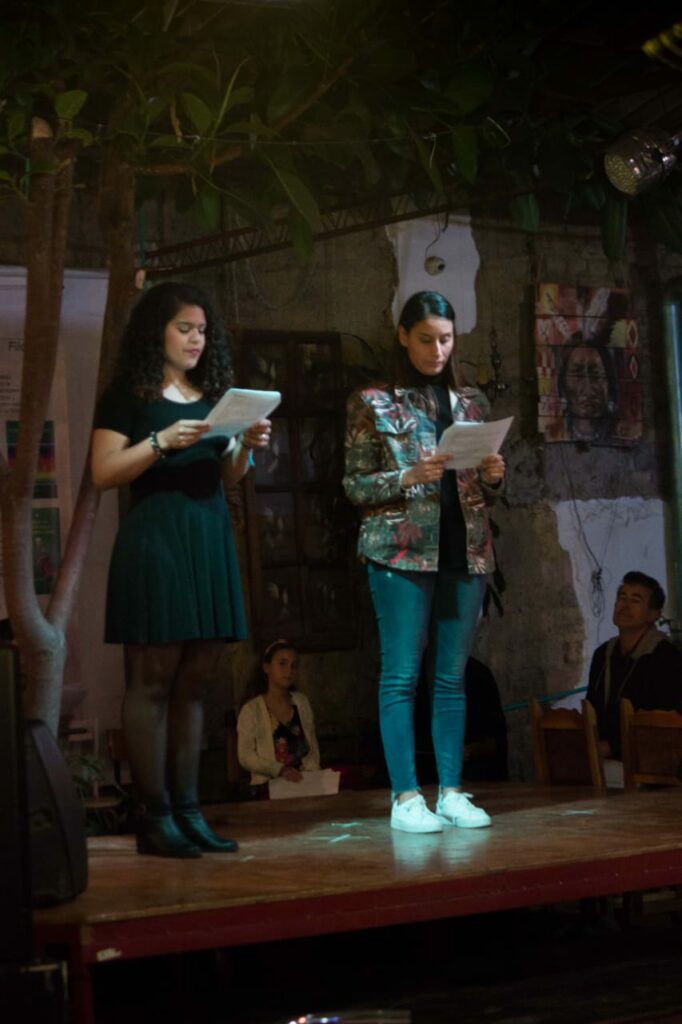
I was forced to really reflect on the difficulties that many Venezuelan refugees experience.
The night’s reading included ten full stories and a collection of bilingual vignettes. A panel discussion followed, contextualizing the personal testimonies within the greater political and humanitarian conversation. Jozef Merkx, UNHCR representative for Colombia, Eric Huxley, Country Director of Samaritan’s Purse, and Roger Fajardo, a Venezuelan-Colombian citizen and story-collector for Todos Somos, made up the panel.
“We hoped to bring to Bogotá and more fortunate people, the first-person stories of Venezuelans fleeing their country. Everyday Colombians often see Venezuelans on the streets […] and they often see them hustling, selling candy, asking for changing or begging, doing anything they can do to survive,” said Lyon.
He continued, “There comes a point where these folks are seen as kind of inconvenient and in time, they become kind of invisible… Our reading was meant to help Colombian society see Venezuelans as real people, people with stories, families, and in the middle of a period of transition and hardship. To see them as people in need of compassion and understanding rather than marginalization and rejection.”
This was the second reading of its kind. The group first hosted a reading of collected testimonies in mid-2019 in Portland, Oregon, where Lyon is based. Todos Somos plans to continue to host story readings as the project grows.
Reducing xenophobia towards Venezuelans
The group aims to help reduce the xenophobia that has developed in Colombia as a result of the crisis by sharing the human stories of everyday Venezuelan refugees. They also hope to publish two to three more books of stories and illustrations per year.
Lyon explained that the group’s overarching goal is to manage more story-collection sites along the migration route, including two in Bogotá, in order to eventually collect at least 5,000 individual testimonies. Carrero added that in order to do so, they also hope to develop story-collecting methods that prompt refugees to be more reflective in their writing.
“I want to highlight the intrinsic value of writing in society and in a community in crisis,” said Carrero.
The plan is to create a digital searchable archive open to researchers, NGO’s, and government institutions like the UN.
“We’d like to be a key reference that international institutions, governments and NGO’s seek out when trying to understand this international crisis and the human cost of it,” said Lyon.

